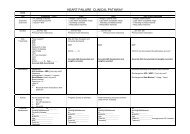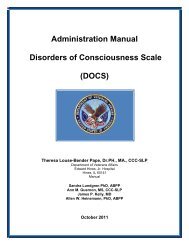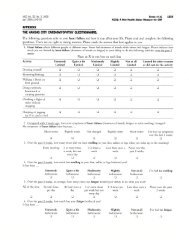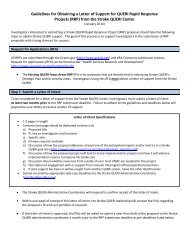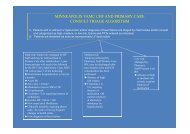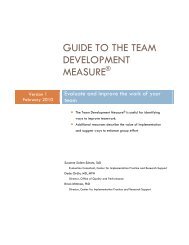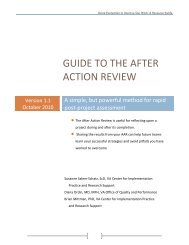The Veteran Supported Education Service Treatment Manual: VetSEd
The Veteran Supported Education Service Treatment Manual: VetSEd
The Veteran Supported Education Service Treatment Manual: VetSEd
Create successful ePaper yourself
Turn your PDF publications into a flip-book with our unique Google optimized e-Paper software.
his/her educational successes. Accordingly, as a peer <strong>VetSEd</strong> provider, you will likely<br />
work with <strong>Veteran</strong>s who are also working on housing, employment, mental health<br />
supports, family connections, avenues of creative expression, spiritual fulfillment and/or<br />
many other areas at the same time. While <strong>VetSEd</strong> providers are not intended to be<br />
primary mental health providers, housing case managers, spiritual advisors or family<br />
therapists, you can promote a <strong>Veteran</strong>‘s recovery by acknowledging the many parts of<br />
his/her life and helping to secure appropriate supports and resources in non-educational<br />
areas, as needed.<br />
v. Non-linear<br />
Our society often places expectations on students to complete their education in a<br />
sequential and linear way. Similarly, society tells many people with a history of mental<br />
health issues that once they ―recover‖ they should feel better forever. <strong>The</strong> reality for most<br />
people, however, is that life in all of its manifestations is non-linear. According to<br />
SAMSHA, ―recovery is not a step-by-step process but one based on continual growth,<br />
occasional setbacks and learning from experience.‖ As a peer <strong>VetSEd</strong> provider you can<br />
promote the recovery of returning <strong>Veteran</strong>s by validating and normalizing this principle.<br />
It is understandable and expected for <strong>Veteran</strong>s to change their mind in the middle of an<br />
education goal. <strong>The</strong>y may enter school studying to be a human resource specialist and<br />
realize after taking a few classes that they are more interested in studying to become an<br />
accountant. Similarly, a <strong>Veteran</strong> living with PTSD may enter class with a mental health<br />
wellness plan in good order, and then experience a set-back when the anniversary of the<br />
attack on their battalion passes. No matter the change in direction or set-back, as a peer<br />
<strong>VetSEd</strong> provider, you will be working with <strong>Veteran</strong>s to help them recognize that positive<br />
change is possible.<br />
vi.<br />
Strengths-based<br />
Every returning <strong>Veteran</strong> who enters <strong>VetSEd</strong> has skills, abilities, talents, survival<br />
strategies and inherent worth. Taken together, these strengths represent an incredible<br />
resource for you and the <strong>Veteran</strong> as they pursue their educational goal. Focusing on the<br />
strengths and abilities of returning <strong>Veteran</strong>s helps challenge internalized stigma and<br />
related self-doubts that returning <strong>Veteran</strong>s may hold. You may find some returning<br />
<strong>Veteran</strong>s having difficulty with identifying their strengths. Fortunately, there are many<br />
resources available to help <strong>Veteran</strong>s identify their inherent abilities and sources of<br />
resilience (Armstrong, Best & Domenici, 2006).<br />
82 | P a g e



